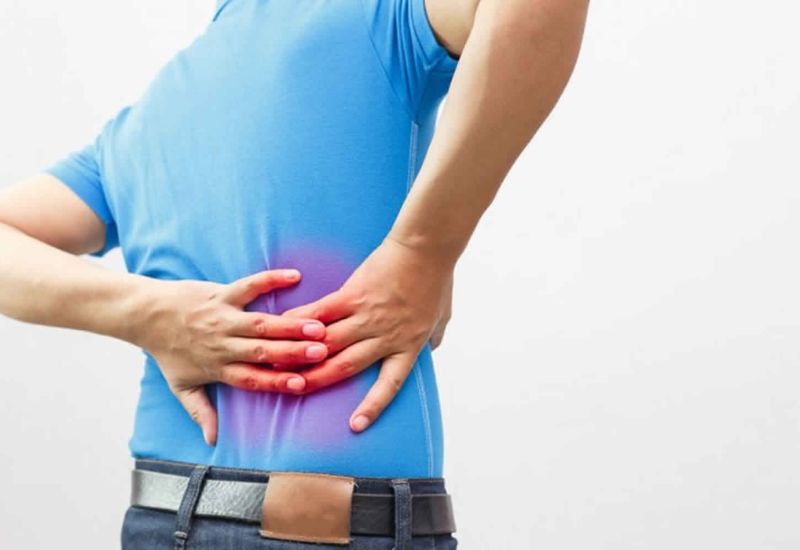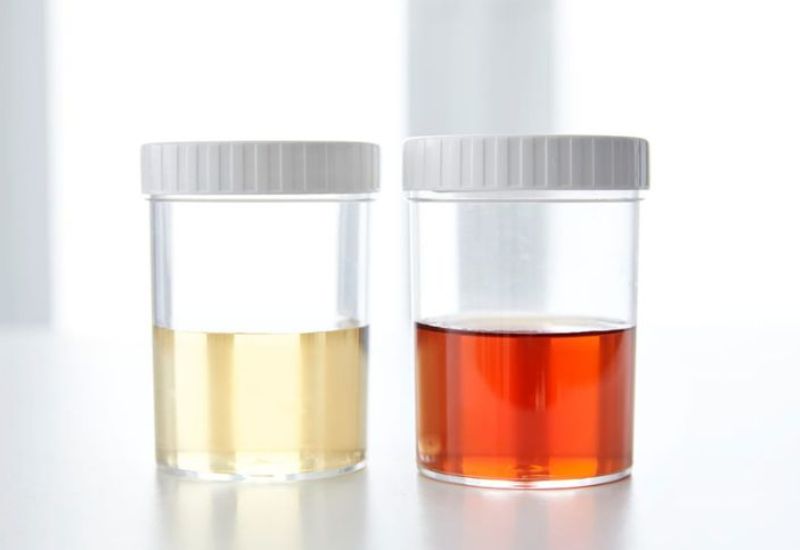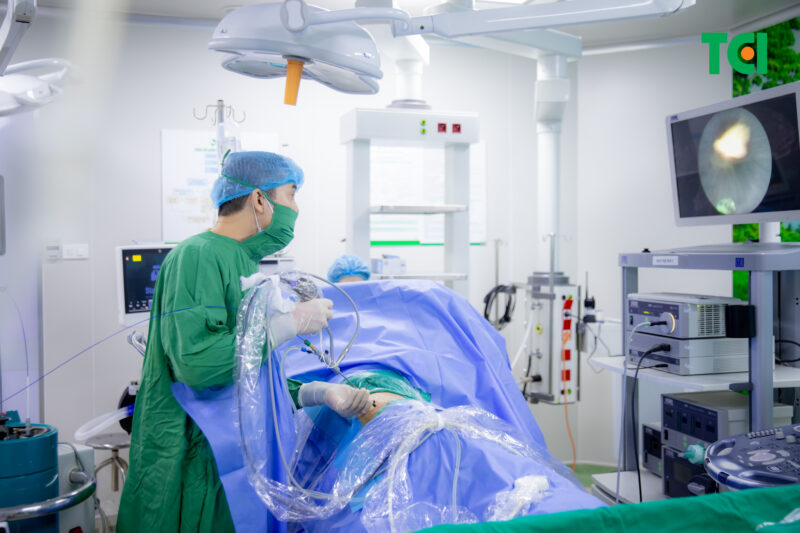Among the most prevalent symptoms of kidney stones is a sudden pain originating from the lower back, rapidly radiating across the abdomen, down to the lower pelvic region. However, kidney stones also manifest through various signs that patients may not immediately recognize. Below are the 7 most common symptoms for readers to be aware of.
1. Common Symptoms of Kidney Stones
1.1. Flank Pain
Flank pain is the most common symptom among those afflicted with kidney stones. The pain arises from the movement of stones within the urinary system. The intensity and location of the pain may vary:
– Sudden and severe renal colic pain: This pain occurs when the stones move within the kidney. Patients typically experience pain starting from the lumbar region, extending down to the lower rib cage, pelvic area, and even the genital region.
– Dull, mild pain in the flank: This type of pain may indicate small stones in the renal pelvis or upper ureter.
– Pain during urination, possible urinary retention: This pain occurs when stones descend into the bladder, causing obstruction in the urethra.
– Intermittent spasms lasting from 20 minutes to 1 hour, sometimes longer: These spasms result from stones rubbing against the urinary system.

Flank pain refers to discomfort in the region located on either side of the lower back, just above the hips.
1.2. Painful or Frequent Urination
Experiencing frequent urination despite normal fluid intake may indicate kidney stones. Symptoms of painful urination may suggest stone-induced damage to the urinary tract lining, potentially leading to inflammation and infection.
1.3. Hematuria (Blood in Urine)
Severe damage to the urinary tract lining caused by stones can result in significant abrasions. Passing urine through these damaged areas can lead to hematuria, wherein urine may appear pinkish, although sometimes microscopic.

Blood in urine
1.4. Unusual Odor and Cloudy Urine
Normally, urine appears light yellow and has no strong or unusual odor. However, complications such as urinary tract infections caused by stones may lead to increased bacterial presence, resulting in foul-smelling, cloudy urine.
1.5. Urinary Obstruction Decreasing Urine Output
When stones obstruct the ureter or urethra, they can slow down or block urine flow. A clear sign of this is significantly reduced urination frequency or difficulty urinating. Inability to urinate warrants immediate medical attention.
1.6. Nausea or Vomiting
While typically associated with digestive issues, nausea can also be a symptom of kidney stones. Stones causing urinary tract obstruction can indirectly affect the digestive system, leading to stomach contractions and nausea.
1.7. High Fever, Fatigue
Severe urinary tract infections resulting from kidney stones can lead to fever, chills, sweating, and an overall feeling of fatigue. Such serious infections require immediate medical intervention.
2. Addressing Kidney Stone Symptoms
The aforementioned symptoms indicate complications arising from kidney stones and necessitate immediate treatment. Treatment protocols usually involve addressing complications such as infection, mucosal damage, and alleviating obstruction before proceeding with stone removal. Specific treatment methods depend on individual circumstances. Patients experiencing these symptoms should seek medical attention promptly.
2.1. Medication-based Treatment
For pain and associated complications, medication is often prescribed. Pain relievers, muscle relaxants, and anti-inflammatory drugs are typically administered to address urinary tract inflammation. In cases of urinary obstruction, catheterization may be performed to relieve the blockage. Once complications are managed, stone removal methods are determined based on stone size and location.
2.2. Lithotripsy Treatment
Several effective and safe methods are commonly utilized for stone removal, including:
– Extracorporeal Shock Wave Lithotripsy (ESWL): Suitable for stones smaller than 1.5 cm in the kidney or upper ureter, ESWL involves shock waves breaking down stones from outside the body, usually requiring no incisions.
– Percutaneous Nephrolithotomy (PCNL): Used for larger stones in the kidney or upper ureter, PCNL involves accessing the stones through a small incision in the back, resulting in minimal scarring and quicker recovery.
– Ureteroscopy with Laser Lithotripsy: This treatment involves inserting a flexible scope through the urethra to access and remove stones, often without the need for surgical incisions.

Percutaneous Nephrolithotomy (PCNL) is performed by a team of specialized urologists at TCI.
Prompt medical consultation is essential upon suspicion of kidney stones. After thorough treatment and recovery, patients should focus on maintaining a balanced diet, adopting a healthy lifestyle, staying hydrated, and adhering to follow-up appointments to prevent stone recurrence.








